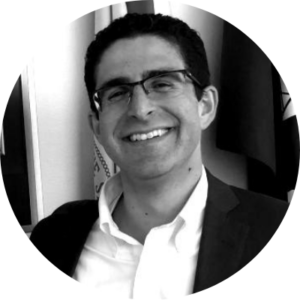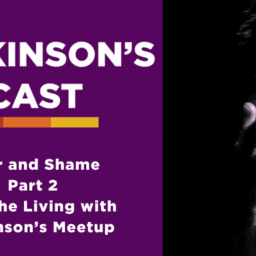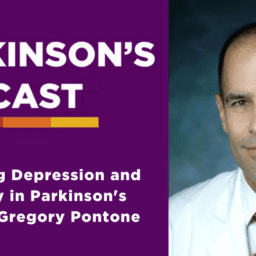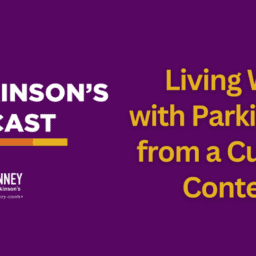Living well with Parkinson’s takes support – from our families, communities, healthcare professionals, workplaces, government, and more. When those systems are compromised due to systemic oppression, bias, or lack of inclusion, health outcomes are compromised. In this webinar, Wissam Deeb, MD, and Nicole Rosendale, MD, help us understand how issues faced by the LGBTQ+ community show up in Parkinson’s care and how we can increase awareness and create more inclusive spaces to address inequities.
In this episode:
Drs. Rosendale and Deeb discuss the following questions:
- How has systemic oppression and bias affected healthcare and wellbeing for members of the LGBTQ+ community historically?
- How do identity and community influence health outcomes, and why is that important for the LGBTQ+ community?
- What are some specific ways that LGBTQ+ people experience inequities in Parkinson’s care and community support?
- What can members of the Parkinson’s community – from individuals to organizations – do to create more inclusive spaces?
To download the transcript, click here.
Note: This is not a flawless word-for-word transcript, but it’s close.
Show Notes
- To understand the bias that exists around homosexuality, you must first examine the history of homosexuality
- In 1952, the field of psychology labeled homosexuality as a mental disorder, classifying it with other personality disorders
- In 1973, a new disorder was established called ego-dystonic homosexuality, described as a mental disorder in which a person is homosexual but does not wish to be
- The HIV/AIDS epidemic in the 1980s created a large amount of bias toward the homosexual community which still has resonating effects today
- To this day, conversion therapy (an attempt to change a person’s sexual orientation) is an accepted practice in many states and countries
- There are higher levels of poverty in the LGBTQ+ community, which leads to reduced access to healthcare and resources. Approximately 40% of homeless youth are LGBTQ+
- Many clinicians are not trained in unique aspects of LGBTQ+ care. This, along with implicit biases, can lead to a lower quality of care
- Individuals in the LGBTQ+ community may avoid seeking care because they fear discrimination. This can be especially problematic for people within the LGBTQ+ Parkinson’s community, because they may not seek care until their symptoms significantly interrupt their daily activities (meaning they experience a lowered quality of life for longer than necessary)
- In current data and research, the LGBTQ+ community is underrepresented and underfunded. This diminishes quality of care and also makes it difficult for healthcare providers to educate themselves on how best to provide care to members of the LGBTQ+ community
- Two small steps that individuals can take to reduce potential bias and discrimination: be mindful of assumptions regarding an individual’s sexual orientation and gender identification, and, when meeting a new person, keep your language gender-neutral until that person self- identifies
Additional Resources
Health Disparities and Parkinson’s: LGBTQ+ Resources
Inspiration and Ideas on the Power of Social Change
Understanding the Role of Trust
How to Facilitate a Discussion on Health Disparities and Parkinson’s
meet the panelists
Dr. Nicole Rosendale is an Assistant Professor in the Neurohospitalist Division of the Department of Neurology at UCSF. She primarily attends on the teaching service at San Francisco General Hospital. Her clinical expertise encompasses the acute manifestations of neurologic disease, including cerebrovascular disease, neuroinfectious disease, and the neurologic manifestations of systemic illness.
In addition to her clinical duties, Dr. Rosendale is dedicated to advancing health equity in neurology through research and education, particularly in regard to LGBTQ+ health. Her work has highlighted the importance of LGBTQ+ health in neurology, educated around caring for transgender individuals in the acute setting and exposed discrepancies between self-reported competence in caring for LGBTQ+ individuals and LGBTQ+ health knowledge in U.S. neurologists. Dr. Rosendale is currently investigating other neurodisparities in LGBTQ+ individuals, including in stroke, multiple sclerosis, and migraine, with the goal of informing culturally appropriate interventions to improve brain health in this community. She has also spoken nationally about the importance of LGBTQ+ health in neurology.
Dr. Rosendale serves as the Chair of the American Academy of Neurology LGBTQI Section, co-editor of the Neurology Equity, Diversity, and Inclusion specialty website, and member of the American Academy of Neurology Equity, Diversity, and Inclusion Joint Coordinating Council.
Dr. Wissam Deeb completed his MD in Lebanon at the University of Balamand. He completed his residency in neurology at the University of Massachusetts in 2015. He then moved to the University of Florida to pursue a movement disorders fellowship, then stayed there in faculty until June 2020, when he moved back to UMass as an assistant professor of neurology. Dr. Deeb has a clinical and research interest in Parkinson disease, focusing on improving disparities in care and Tourette syndrome, focusing on incorporating technological advancements such as wearable devices in clinical and everyday care.Recognition awards.
Presented in partnership with:

Thanks for Listening!
To share your thoughts:
- Leave a note in the comment section below.
- Ask a question by emailing us here.
- Share this show on Facebook.
To help out the show:
- Leave an honest review on iTunes. Your ratings and reviews really help, and we read each one.
- Subscribe on iTunes.
Listen & Subscribe
Apple Podcasts | Stitcher
*The Third Season of the Parkinson’s Podcast is made possible through generous support in honor of Dr. Margaret Hilgartner.



















